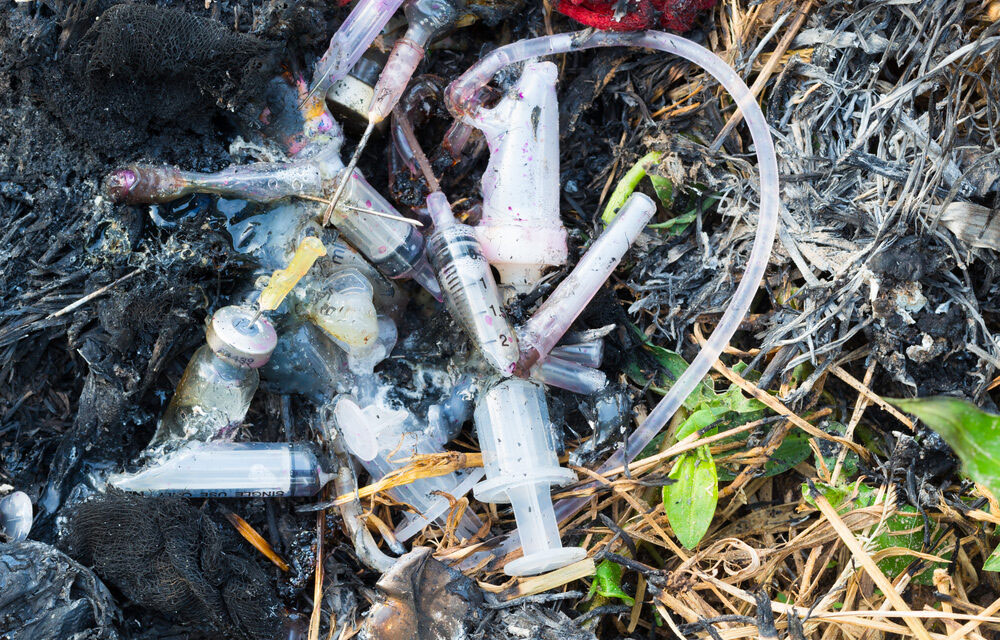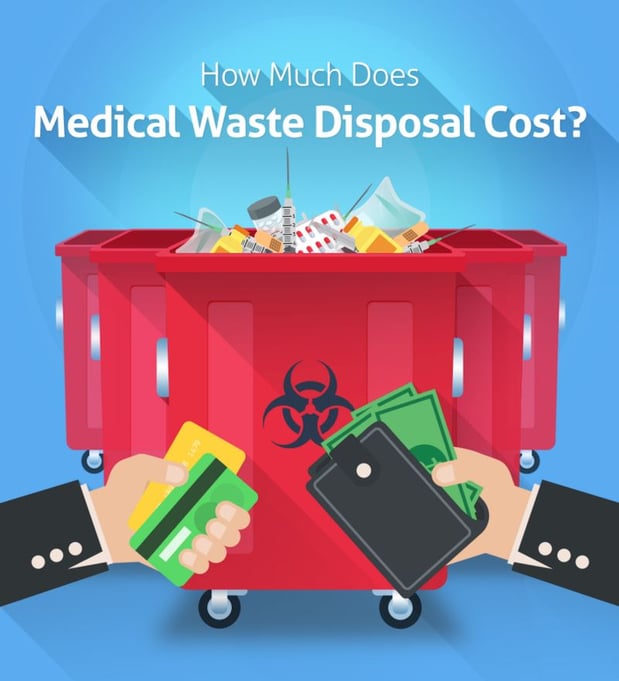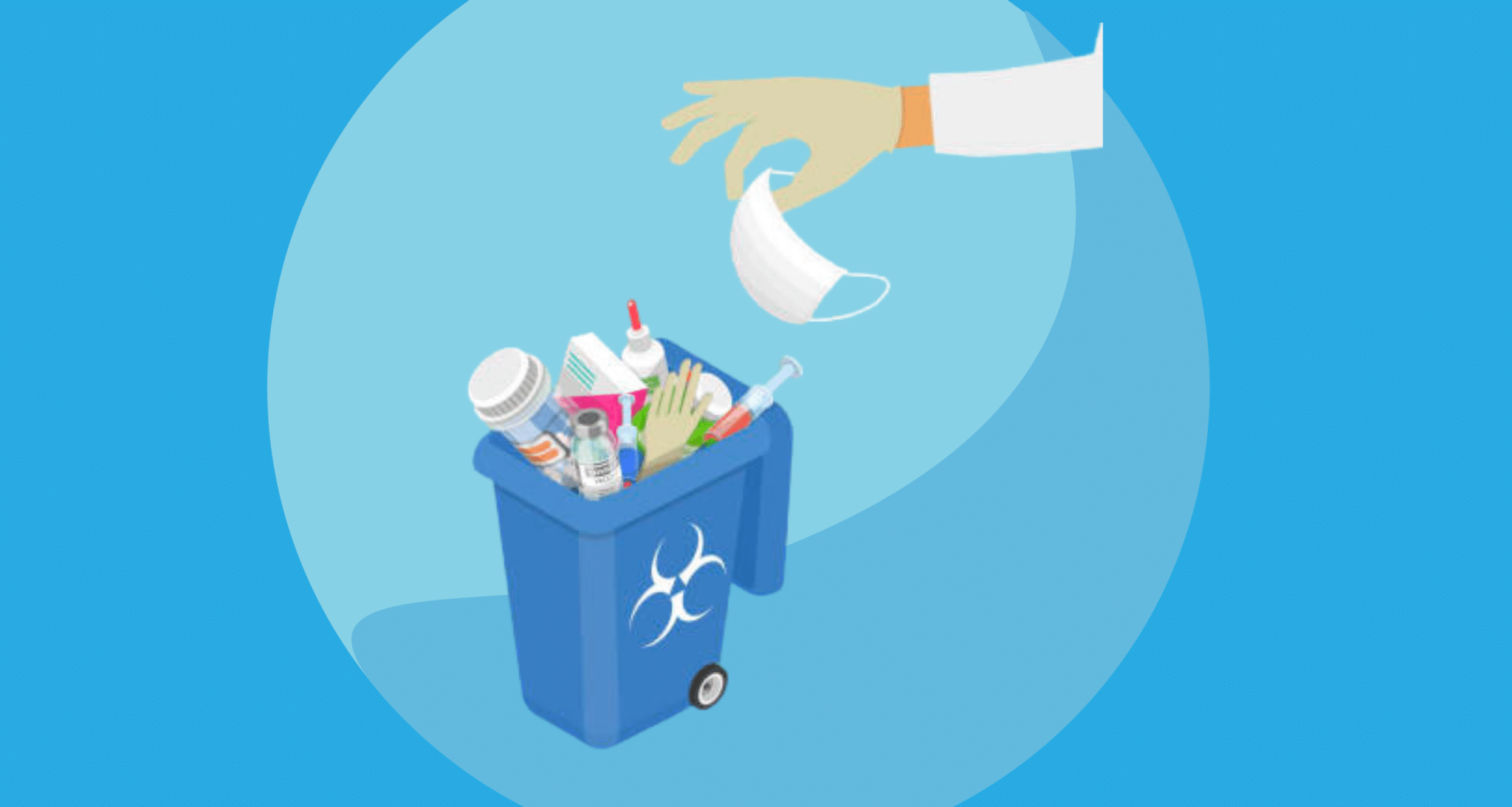Trusted Medical Waste Disposal Services: Protecting Your Practice
Trusted Medical Waste Disposal Services: Protecting Your Practice
Blog Article
Navigating Medical Waste Disposal: Important Solutions for Medical Care Facilities
In the detailed landscape of medical care procedures, the monitoring of clinical waste is a crucial aspect that demands meticulous attention. Healthcare facilities, whether small clinics or big hospitals, are handed over with the obligation of handling, treating, and throwing away a broad range of medical waste streams. The complexities associated with navigating with the regulatory requirements, ensuring correct waste segregation, and performing safe collection and transport processes are paramount. Understanding the essential solutions that support medical waste disposal is not just an issue of compliance yet additionally a basic element in safeguarding public wellness and ecological wellness. The ins and outs of this process are essential for medical care centers, and the experience used in this realm plays a critical duty in preserving the integrity of health care systems.
Regulatory Compliance Assistance
For healthcare centers, making sure governing compliance support is important to maintain correct handling and disposal of medical waste. By partnering with regulatory conformity professionals, health care facilities can remain updated on developing laws, minimize dangers associated with inappropriate waste disposal, and eventually add to a much safer and much more lasting atmosphere for all.
Waste Partition Support

Medical care centers must offer clear guidelines and training to personnel on just how to set apart waste effectively. This includes separating basic waste from dangerous materials such as sharps, contagious waste, pharmaceuticals, and chemical waste. Color-coded bins, labels, and signs are generally used to aid in waste partition practices. Regular audits and tracking of waste segregation procedures are vital to recognize any kind of concerns and make essential renovations.
Collection and Transportation Solutions

Correct collection and transportation services are important parts of the clinical waste disposal process in healthcare centers. These services make certain that dangerous products are dealt with safely and in conformity with regulations to secure both the setting and public wellness. Healthcare centers depend on specialized waste monitoring companies to give effective collection and transport services customized to their needs.
Clinical waste collection involves setting apart different kinds of waste at the point of generation, utilizing color-coded bags or bins to differentiate in between basic, harmful, pharmaceutical, and other waste streams. Once accumulated, the waste is carried in committed vehicles furnished to handle hazardous products safely.
Therapy and Disposal Solutions
In the world of medical garbage disposal for medical care centers, after the critical stage of collection and transportation solutions, the focus moves in the direction of carrying out efficient treatment and disposal options. Treatment services usually involve processes such as autoclaving, which utilizes vapor under stress to sterilize the waste. This technique is commonly utilized for transmittable waste that has to be made non-hazardous prior to disposal. Another prevalent treatment technique is incineration, where waste is subjected to high temperatures in regulated settings to reduce its quantity and remove pathogens.
Disposal services incorporate the final action in the clinical waste management process. Recycling and source recuperation are additionally getting traction as lasting disposal alternatives for certain types of clinical waste products.
Efficient treatment and disposal options are vital in guaranteeing compliance with regulations and safeguarding public health and wellness and the atmosphere. Medical care centers need to carefully examine and select proper approaches that line up with their waste management goals and sustainability campaigns.
Staff Training and Education

To properly manage clinical waste disposal in healthcare facilities, comprehensive staff training and education and learning play an essential function imp source in ensuring adherence to regulative demands and keeping a secure atmosphere. Appropriate training furnishes staff with the knowledge and skills useful content required to handle various sorts of medical waste, segregate them appropriately, and package them securely for disposal. By informing employees on the threats connected with inappropriate handling of medical waste, centers can minimize the chance of crashes, contamination, and regulative violations.

Final Thought
To conclude, health care centers rely on essential clinical garbage disposal services to make sure regulatory conformity, proper waste segregation, safe collection and transport, efficient therapy and disposal, in addition to staff training and education. These solutions play an important duty in maintaining the health and wellness of both health care employees and the general public, highlighting the relevance of correct management of medical waste in health care setups.
For health care centers, guaranteeing regulatory conformity support is vital to maintain proper handling and disposal of medical waste. Waste segregation includes categorizing different kinds of medical waste to guarantee ideal handling, therapy, and disposal. This consists of dividing general waste from hazardous materials such as sharps, contagious waste, pharmaceuticals, and chemical waste.Clinical waste collection entails segregating different types of waste click to investigate at the factor of generation, using color-coded bins or bags to differentiate in between general, dangerous, pharmaceutical, and various other waste streams.In the world of clinical waste disposal for healthcare facilities, after the essential stage of collection and transportation services, the emphasis moves in the direction of executing reliable treatment and disposal options.
Report this page